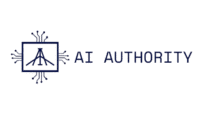Standards
AI Authority’s frameworks and certifications are built on internationally recognized standards that ensure consistent, trustworthy, and ethical AI deployment worldwide:
ISO 42001: Artificial Intelligence Management Systems
ISO/IEC 42001 is the world’s first standard dedicated to the management systems of AI. It lays down requirements and best practices for organizations to design, implement, and continually improve AI systems responsibly. The standard ensures ethical performance, risk management, and compliance with legal and societal expectations.
Learn more: ISO 42001 official page
NIST Guidelines
The U.S. National Institute of Standards and Technology (NIST) provides foundational frameworks that guide trustworthy AI development and deployment. Their AI Risk Management Framework helps organizations identify and mitigate risks related to reliability, bias, security, and fairness, fostering safer AI ecosystems.
Learn more: NIST AI Risk Management Framework
NISTIR Reports
NIST publishes insightful reports such as NISTIR 8312 and NISTIR 8367 focused on explainability and interpretability in AI systems. These documents highlight principles and psychological foundations essential for making AI decisions transparent and understandable for diverse stakeholders.
Learn More: NISTIR 8312, NISTIR 8367 summary
Regulations
AI Authority aligns its offerings and guidance with critical global AI regulations that set the baseline for ethical, transparent, and legal AI operations:
European Union AI Act
As the most comprehensive AI regulatory framework, the EU AI Act classifies AI applications by risk level and mandates strict requirements on risk management, transparency, and accountability to protect fundamental rights across member states.
More info: EU AI Act Guide
United States Executive Orders on AI
The U.S. government has issued executive orders promoting safe, reliable, and secure AI development, emphasizing transparency and civil rights protections. The orders empower agencies to adopt risk management frameworks and enhance federal AI leadership.
More Info: Executive Order 14110, White House AI Policy
China’s AI Regulations
China operates one of the strictest AI regulatory ecosystems, including the Personal Information Protection Law (PIPL), Algorithmic Regulation, and rules governing generative AI and synthetic media. These ensure security, ethical alignment, and ideological conformity.
More Info: China AI Regulations, Asia Business Law Journal
Singapore’s AI Governance Framework
Singapore’s Model AI Governance Framework promotes transparency, fairness, and accountability while encouraging innovation. It includes the world-first AI governance testing tool, A.I. Verify, as a self-assessment mechanism for businesses.
Explore: Singapore PDPC Model AI Governance (PDF)
Personal Information Protection Law (PIPL) – China
PIPL is China’s landmark data privacy law, regulating personal data collection, transfer, and algorithmic use, ensuring data security and privacy in the AI age.
More Details: PIPL Summary
Personal Data Protection Act (PDPA) – Singapore
PDPA governs data protection and privacy in Singapore, prescribing rules for collecting, using, and disclosing personal data, with specific guidance on AI and automated systems.
More info: Singapore PDPA Overview
